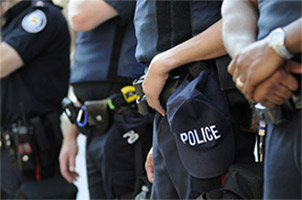As a former law enforcement executive responsible for critical incident investigation oversight and analysis I was able to observe the importance of properly developing, obtaining and retaining all relevant documents and evidence related to an incident. For example, all reports, video, photographs, dispatch logs, daily activity logs and training records. (Don’t forget relevant social/news media and press releases.)
This is equally important in the private sector where, in some cases, companies of varying sizes may not have effective systems in place to properly document, catalog and retain relevant reports and evidence. At a minimum, every public agency and private entity (regardless of size) should have a procedure in place to document all incidents that have the potential to generate liability and subsequently result in civil litigation. Again, when appropriate, take plenty of photographs (they’re cheap and easy to store these days!) and, if video is available, retain a copy.
 Take Away: Your internal policies and procedures relative to investigating incidents may vary – but, proper documentation and the appropriate retention of supporting evidence will serve you well down the line in a civil, administrative or internal proceeding. At a minimum, it will provide managers/owners, insurers and legal staff with an opportunity to thoroughly evaluate the merits of an incident based on comprehensive documentation and relevant evidence. Document…Document…Document…
Take Away: Your internal policies and procedures relative to investigating incidents may vary – but, proper documentation and the appropriate retention of supporting evidence will serve you well down the line in a civil, administrative or internal proceeding. At a minimum, it will provide managers/owners, insurers and legal staff with an opportunity to thoroughly evaluate the merits of an incident based on comprehensive documentation and relevant evidence. Document…Document…Document…
Note: Access to and retention of certain documents and records (e.g. personnel and medical) may be subject to statutory restrictions, labor agreements, etc. I recommend you consult legal counsel whenever a matter is in question.
image credit: shutterstock

